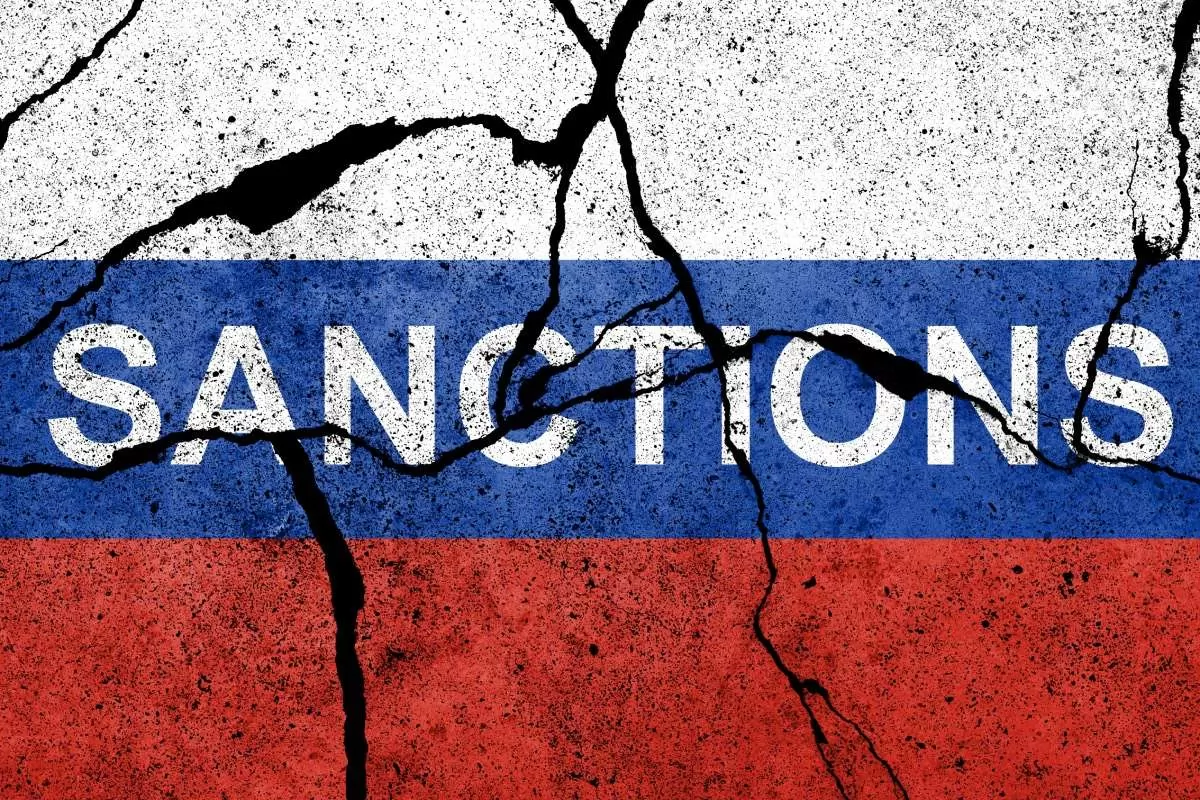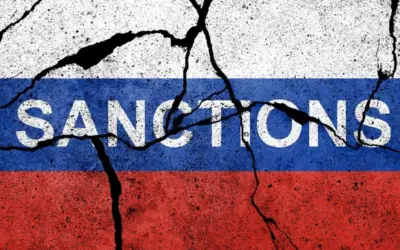1. Introduction
Russia sanctions enforcement is intensifying. Since Russia’s full-scale invasion of Ukraine in February 2022, the European Union and United Kingdom have adopted sweeping sanctions against Russian individuals, entities, and sectors. These measures span asset freezes, trade bans, service restrictions, financial prohibitions, and more, forming one of the most extensive sanctions regimes in modern history.
As the EU debates its 18th package of sanctions (currently blocked by Slovakia)*, it is important to look beyond the political headlines. While much attention focuses on the scope or effectiveness of sanctions design, actual enforcement remains inconsistent but is clearly underway. Regulators and prosecutors across the EU and the UK are actively pursuing violations, and courts are imposing significant penalties – although not all jurisdictions are moving at the same pace.
This article highlights recent Russia sanctions enforcement actions in the Netherlands, Germany and the UK – illustrating how breaches are investigated and penalized in practice.
2. The Russia Sanctions Landscape: Expanding and Enforced
The EU has gradually expanded its Russia sanctions regime since 2014, but the scope increased dramatically following the February 2022 invasion. To date, the EU has adopted 17 sanctions packages targeting Russian individuals, companies, and sectors. The proposed 18th EU sanctions package, which is expected to introduce new export restrictions and financial listings, remains blocked due to opposition from Slovakia.*
In earlier blog articles, I have already examined several specific prohibitions under the EU sanctions regime (see The Professional Services Ban, The Legal Advisory Services Prohibition, and The “No Russia” Clause.
This article focuses instead on sanctions enforcement in the EU and UK – where non-compliance meets real-world consequences, albeit with varying levels of intensity across Member States. Investigations and penalties are often driven by national priorities, political will, and local capacity, which means the level of enforcement varies considerably between jurisdictions. Nonetheless, recent cases show that authorities are willing and able to act – and the risks of non-compliance are increasingly tangible.
3. Russia Sanctions Enforcement in the Netherlands
Recent Russia sanctions enforcement actions in the Netherlands highlight how seriously violations are being treated:
- In July 2025, the Rotterdam District Court sentenced a 43-year-old Russian national to three years in prison for breaching EU sanctions and Dutch export controls. He had transferred sensitive semiconductor know-how from ASML (a key Dutch chip manufacturer) to entities linked to the Russian defence sector (see here and here.
- In a separate case, the District Court of Amsterdam ordered the confiscation of EUR 1,013,956.00 from an unnamed corporate defendant convicted in November 2024. The company had provided goods and services for the construction of the Kirch Bridge and was found to have generated gross revenue of over EUR 2.7 million in breach of sanctions. After accounting for allowable costs (including internal labour and insurance), the final confiscation amount was set just above EUR 1 million. A EUR 120,000 fine was also imposed.
- The Dutch Fiscal Intelligence and Investigation Service (FIOD) recently announced the arrest of four individuals and the opening of a criminal investigation into a Rotterdam-based company suspected of breaching EU Russia sanctions. The investigation centers on alleged prohibited support for vessels forming part of the so-called Russian shadow fleet (see here).
Still, broader questions remain about the scale and coordination of enforcement efforts, prompting legislative changes. A legislative proposal to revise the Dutch Sanctions Act from 1977 is under review. The proposed changes are intended to strengthen the legal framework for enforcement and improve coordination between Dutch authorities.
4. Russia Sanctions Enforcement in Germany
Germany has escalated its sanctions enforcement in recent months, with multiple authorities coordinating investigations, raids, and prosecutions.
- Hamburg’s Customs Investigations Office executed raids on residential and commercial properties in Berlin targeting a suspected luxury goods import operation. The investigation centered on alleged imports of substitute caviar from Russia, in breach of EU sanctions on luxury food products, and possible customs evasion. A conviction for commercial-level violation of import/export duties, including sanctioned goods, carries a minimum one-year prison sentence per offence, while customs fraud can result in sentences ranging from six months to ten years (see here).
- On 8 July 2025, the Marburg Regional Court sentenced an individual to five years’ imprisonment and confiscated approximately EUR 5 million in gross proceeds. The conviction involved 71 counts related to the illegal export of luxury cars to Russia in violation of EU sanctions (see here).
Recent data shows that Germany is conducting almost 2,000 ongoing investigations into suspected sanctions violations. Notwithstanding, critics note that investigations often take years to conclude, and that coordination between enforcement bodies is still a work in progress.
5. Sanctions enforcement in the United Kingdom
Post‑Brexit, the UK maintains its own sanctions regime under the Sanctions and Anti-Money Laundering Act 2018, with enforcement led by the Office of Financial Sanctions Implementation (OFSI) and HM Revenue & Customs (HMRC).
- In May 2025, HMRC imposed a record GBP 1.16 million compound penalty on an unnamed UK company for making goods available to Russia in breach of UK sanctions.
- On 11 April 2025, the Crown Prosecution Service secured its first UK criminal convictions under the Russia (Sanctions) (EU Exit) Regulations 2019, sentencing Dmitrii Ovsiannikov, a former Russian Deputy Minister and Governor of Sevastopol, to 40 months’ imprisonment, and his brother Alexei to a 15-month suspended sentence. Both were convicted of financial sanctions breaches and money laundering for using UK bank accounts and assets despite designation. The case marked a historic milestone in UK sanctions enforcement (see here).
Although a significant step forward, this also highlights how few criminal sanctions prosecutions have occurred in the UK to date – raising questions about enforcement prioritization.
6. A Broader Enforcement Trend across the EU and Beyond
While this blog article highlights enforcement actions in the Netherlands, Germany and the UK, sanctions compliance is actively pursued elsewhere in the EU as well. For example, as at July 2025:
- In Spain and Greece, investigation are ongoing into alleged imports of sanctioned Russian birch;
- in Finland, a Helsinki logistics company is under investigation for sanctioned exports to Russia via third countries, including Lithuania, Bulgaria, Poland, Belarus, Kazakhstan, and Kyrgyzstan; and
- in Latvia, 91 proceedings have been initiated to confiscate criminal property linked to EU sanctions breaches. So far, 57 of these cases have led to confiscation orders totaling EUR 1,935,683.
The list continues, confirming that enforcement is not limited to a few headline jurisdictions. Nevertheless, critics remark that these cases remain scattered and underreported, and that EU coordination remains a challenge.
Across the Atlantic, the United States has adopted a particularly aggressive enforcement posture. The Office of Foreign Assets Control (OFAC) regularly imposes significant penalties for sanctions violations, often involving non-US actors where a US nexus exists. The Department of Justice (DOJ) has also ramped up prosecutions under sanctions and export control laws. Notably, in March 2022, it launched Task Force KleptoCapture, a dedicated enforcement unit targeting sanctions evasion, money laundering, and illicit finance linked to Russia.
US enforcement extends extraterritorially – particularly when US persons, technologies, or financial systems are involved. By contrast, EU enforcement still varies widely by country, sector, and capacity.
7. Conclusion and Key Takeaway: Compliance Must Be Proactive and Cross-Border
The enforcement actions outlined above demonstrate that sanctions compliance is not optional. Breaches can result in criminal convictions, multi-million-euro fines, confiscation of profits, and public enforcement measures – each carrying serious reputational and financial consequences.
For internationally active businesses, this means:
- Embedding sanctions controls across all internal processes – not just at the point of sale;
- regularly updating risk assessments, particularly regarding third countries and indirect routes;
- aligning contractual protections, such as the No-Russia Clause, and ensuring robust screening tools are in place; and
- taking compliance seriously – not just in principle, but in governance, day-to-day operations, and documentation.
While EU-wide enforcement remains patchy and politically sensitive in places, the direction of travel is clear: scrutiny is increasing, cross-border cooperation is deepening, and regulators are starting to act. Businesses should not mistake uneven enforcement for lack of risk. The time to act is not when something goes wrong – but now, while it can still be prevented.
* Update — 18th EU Sanctions Package against Russia Adopted (19 July 2025)
On 18 July 2025, one day after this blog article was published, the Council of the European Union approved the 18th package of sanctions against Russia – described by the EU’s High Representative as “one of its strongest sanctions packages to date”. This package, officially published on 19 July 2025, introduces wide-ranging restrictive measures targeting Russia, while also tightening enforcement against third-country circumvention. Five key areas have been subject to a plethora of technical changes:
- A significant widening of the Russian financial institutions with whom it is not permitted to deal, with a particular focus on reducing avoidance transactions via crypto firms.
- Further restrictions to seek to reduce Russian energy exports including a tightening of measures against Russia’s shadow fleet.
- A further tightening of the export control/export ban regime concerning dual-use military goods and technologies.
- Targeted measures to restrict exports of software used in Russia’s financial sector.
- Enhanced anti-circumvention and third-country measures.
In parallel, the EU adopted mirror measures against Belarus to align Belarus’s sanctions regime with the new Russia sanctions.
Thoughts, comments or questions? Get in touch!
Gundo Haacke, Interim Legal Counsel & Owner of Haacke Commercial Legal Services.
Blog article published on 17 July 2025. Updated on 29 July 2025
Image credit: ukranews.com.
Disclaimer
The information provided in this blog article is for general informational purposes only. Nothing contained in this blog article constitutes legal advice, nor is it intended to be a substitute for legal counsel on any subject matter. The author disclaims any liability in connection with the use of this information.




